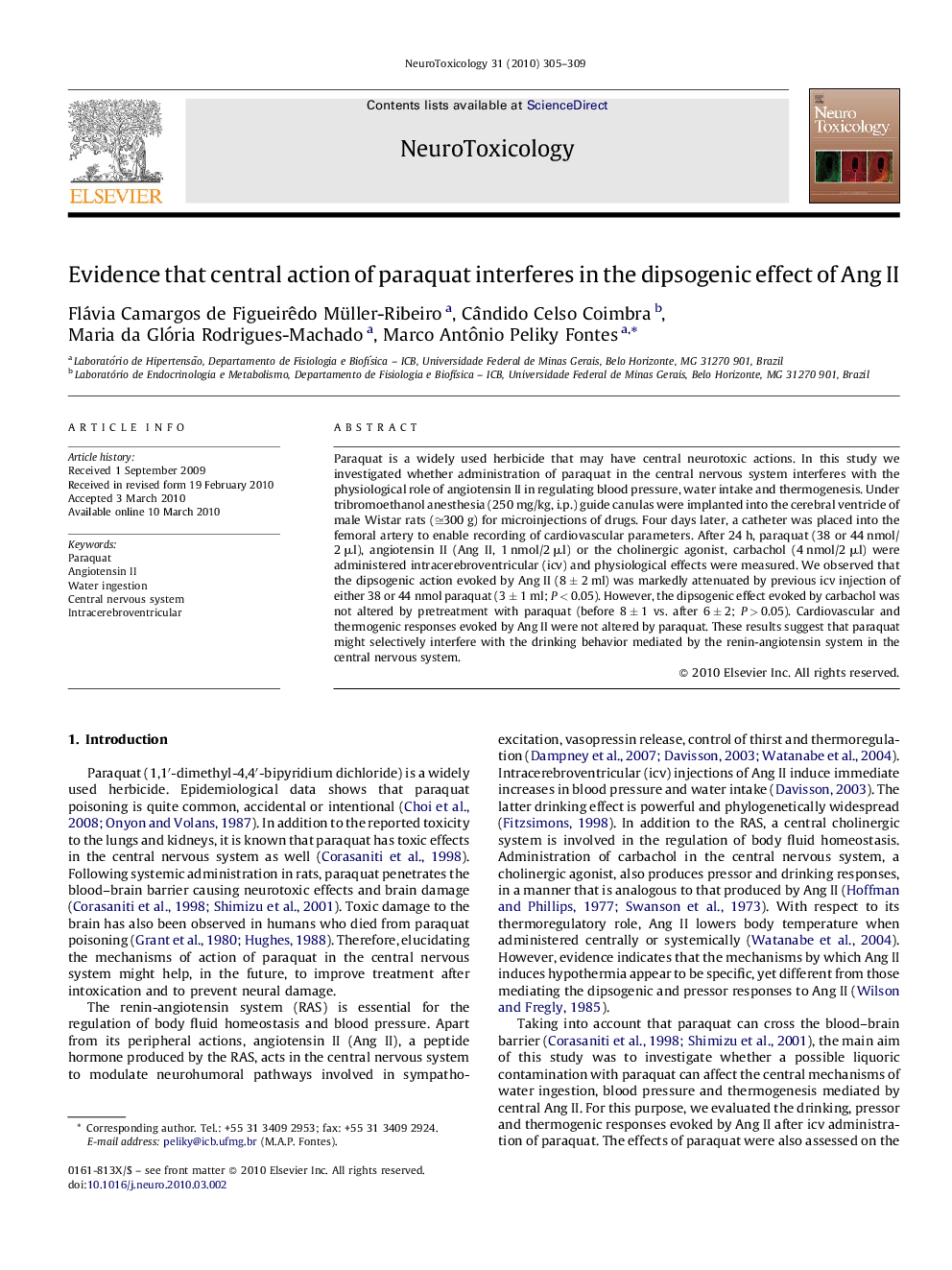| Article ID | Journal | Published Year | Pages | File Type |
|---|---|---|---|---|
| 2589930 | NeuroToxicology | 2010 | 5 Pages |
Paraquat is a widely used herbicide that may have central neurotoxic actions. In this study we investigated whether administration of paraquat in the central nervous system interferes with the physiological role of angiotensin II in regulating blood pressure, water intake and thermogenesis. Under tribromoethanol anesthesia (250 mg/kg, i.p.) guide canulas were implanted into the cerebral ventricle of male Wistar rats (≅300 g) for microinjections of drugs. Four days later, a catheter was placed into the femoral artery to enable recording of cardiovascular parameters. After 24 h, paraquat (38 or 44 nmol/2 μl), angiotensin II (Ang II, 1 nmol/2 μl) or the cholinergic agonist, carbachol (4 nmol/2 μl) were administered intracerebroventricular (icv) and physiological effects were measured. We observed that the dipsogenic action evoked by Ang II (8 ± 2 ml) was markedly attenuated by previous icv injection of either 38 or 44 nmol paraquat (3 ± 1 ml; P < 0.05). However, the dipsogenic effect evoked by carbachol was not altered by pretreatment with paraquat (before 8 ± 1 vs. after 6 ± 2; P > 0.05). Cardiovascular and thermogenic responses evoked by Ang II were not altered by paraquat. These results suggest that paraquat might selectively interfere with the drinking behavior mediated by the renin-angiotensin system in the central nervous system.
